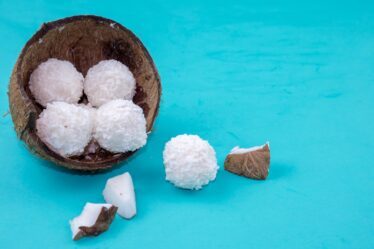
Thyme is a popular herb that has been used for centuries for its culinary and medicinal properties. It is native to the Mediterranean region and has a long history of use in various cultures. The ancient Egyptians used thyme for embalming, while the Greeks and Romans used it as incense and in their baths. Today, dried thyme herbs are widely used in cooking to add flavor and aroma to dishes.
There are several different types of thyme herbs, each with its own unique flavor profile. Common varieties include English thyme, French thyme, and lemon thyme. English thyme has a strong, earthy flavor and is often used in savory dishes such as stews and roasts. French thyme has a milder flavor and is commonly used in Mediterranean cuisine. Lemon thyme has a citrusy aroma and is often used in marinades and dressings.
Dried thyme herbs are versatile and can be used in a variety of dishes. They pair well with meats, vegetables, soups, and sauces. Thyme can be added to marinades for grilled meats, sprinkled over roasted vegetables, or infused into oils and vinegars for dressings. It can also be used to flavor stocks, stews, and sauces. The possibilities are endless when it comes to using dried thyme herbs in cooking.
Key Takeaways
- Dried thyme herbs have various uses in cooking and medicine.
- Dried thyme herbs are rich in vitamins and minerals, including vitamin C and iron.
- Dried thyme herbs contain antioxidants that help protect the body from damage caused by free radicals.
- Dried thyme herbs have anti-inflammatory properties that can help reduce inflammation in the body.
- Dried thyme herbs can aid in digestion and boost the immune system.
The Nutritional Value of Dried Thyme Herbs
Dried thyme herbs are not only flavorful but also packed with nutrients. They are a good source of vitamins A and C, as well as minerals such as iron, calcium, and manganese. Thyme also contains antioxidants that help protect the body against free radicals, which can cause damage to cells.
Compared to other herbs and spices, dried thyme herbs have a high nutritional value. For example, one teaspoon of dried thyme contains about 3% of the recommended daily intake of vitamin C and 2% of the recommended daily intake of iron. In comparison, one teaspoon of dried oregano contains about 1% of the recommended daily intake of vitamin C and 1% of the recommended daily intake of iron.
To incorporate dried thyme herbs into your diet for maximum nutritional benefits, you can add them to a variety of dishes. Sprinkle thyme over roasted vegetables, add it to soups and stews, or use it as a seasoning for grilled meats. You can also infuse thyme into oils and vinegars to use in dressings and marinades. By incorporating dried thyme herbs into your meals, you can boost your nutrient intake and add flavor to your dishes.
The Antioxidant Properties of Dried Thyme Herbs
Antioxidants are compounds that help protect the body against oxidative stress, which can lead to chronic diseases such as heart disease, cancer, and diabetes. Dried thyme herbs are rich in antioxidants, making them a valuable addition to a healthy diet.
Research has shown that thyme contains several antioxidants, including rosmarinic acid, thymol, and carvacrol. These compounds have been found to have strong antioxidant properties and may help reduce inflammation in the body. In addition, thyme has been shown to have antimicrobial properties, which can help fight off harmful bacteria.
To boost your antioxidant intake, you can use dried thyme herbs in a variety of ways. Add them to marinades for grilled meats, sprinkle them over roasted vegetables, or infuse them into oils and vinegars for dressings. You can also brew thyme tea by steeping dried thyme herbs in hot water for a few minutes. By incorporating dried thyme herbs into your diet, you can increase your antioxidant intake and support your overall health.
Dried Thyme Herbs and Their Anti-inflammatory Benefits
| Benefits of Dried Thyme Herbs | Metric |
|---|---|
| Reduced Inflammation | Thymol content |
| Antioxidant Properties | Flavonoid content |
| Improved Digestion | Essential oil content |
| Lowered Blood Pressure | Potassium content |
| Boosted Immune System | Vitamin C content |
Inflammation is a natural response by the body to protect against injury and infection. However, chronic inflammation can lead to a variety of health problems, including heart disease, arthritis, and autoimmune disorders. Dried thyme herbs have been found to have anti-inflammatory properties, which can help reduce inflammation in the body.
Research has shown that thyme contains compounds such as rosmarinic acid and thymol, which have been found to have anti-inflammatory effects. These compounds may help reduce the production of inflammatory markers in the body and inhibit the activity of enzymes that promote inflammation.
To use dried thyme herbs to reduce inflammation, you can add them to a variety of dishes. Sprinkle thyme over roasted vegetables, add it to soups and stews, or use it as a seasoning for grilled meats. You can also infuse thyme into oils and vinegars to use in dressings and marinades. By incorporating dried thyme herbs into your meals, you can help reduce inflammation in the body and support your overall health.
The Digestive Benefits of Dried Thyme Herbs
The digestive system plays a crucial role in breaking down food and absorbing nutrients. However, many people experience digestive issues such as bloating, gas, and indigestion. Dried thyme herbs have been found to have digestive benefits and can help alleviate these common digestive issues.
Research has shown that thyme contains compounds such as thymol and carvacrol, which have been found to have antimicrobial properties. These compounds may help kill off harmful bacteria in the gut and promote the growth of beneficial bacteria. Thyme has also been found to stimulate the production of digestive enzymes, which can help improve digestion.
To improve digestion and alleviate digestive issues, you can use dried thyme herbs in a variety of ways. Add them to marinades for grilled meats, sprinkle them over roasted vegetables, or infuse them into oils and vinegars for dressings. You can also brew thyme tea by steeping dried thyme herbs in hot water for a few minutes. By incorporating dried thyme herbs into your diet, you can support your digestive health and alleviate common digestive issues.
Dried Thyme Herbs and Their Immune-Boosting Effects

The immune system is responsible for protecting the body against harmful pathogens such as bacteria, viruses, and fungi. Dried thyme herbs have been found to have immune-boosting effects and can help support a healthy immune system.
Research has shown that thyme contains compounds such as thymol and carvacrol, which have been found to have antimicrobial properties. These compounds may help kill off harmful bacteria and viruses in the body. Thyme has also been found to stimulate the production of white blood cells, which are responsible for fighting off infections.
To support your immune system, you can use dried thyme herbs in a variety of ways. Add them to marinades for grilled meats, sprinkle them over roasted vegetables, or infuse them into oils and vinegars for dressings. You can also brew thyme tea by steeping dried thyme herbs in hot water for a few minutes. By incorporating dried thyme herbs into your diet, you can boost your immune system and support your overall health.
Dried Thyme Herbs and Their Heart-Healthy Properties
Heart disease is a leading cause of death worldwide, and maintaining heart health is crucial for overall well-being. Dried thyme herbs have been found to have heart-healthy properties and can help support cardiovascular health.
Research has shown that thyme contains compounds such as rosmarinic acid and thymol, which have been found to have antioxidant properties. These compounds may help reduce oxidative stress in the body and protect against heart disease. Thyme has also been found to have anti-inflammatory effects, which can help reduce the risk of heart disease.
To support heart health, you can use dried thyme herbs in a variety of ways. Add them to marinades for grilled meats, sprinkle them over roasted vegetables, or infuse them into oils and vinegars for dressings. You can also brew thyme tea by steeping dried thyme herbs in hot water for a few minutes. By incorporating dried thyme herbs into your diet, you can support your cardiovascular health and reduce the risk of heart disease.
Dried Thyme Herbs and Their Antibacterial Properties
Bacteria are microscopic organisms that can cause infections and diseases in the body. Dried thyme herbs have been found to have antibacterial properties and can help fight off harmful bacteria.
Research has shown that thyme contains compounds such as thymol and carvacrol, which have been found to have antimicrobial properties. These compounds may help kill off harmful bacteria and inhibit their growth. Thyme has also been found to be effective against antibiotic-resistant bacteria, making it a valuable natural remedy.
To fight off harmful bacteria, you can use dried thyme herbs in a variety of ways. Add them to marinades for grilled meats, sprinkle them over roasted vegetables, or infuse them into oils and vinegars for dressings. You can also brew thyme tea by steeping dried thyme herbs in hot water for a few minutes. By incorporating dried thyme herbs into your diet, you can help protect against bacterial infections and support your overall health.
Dried Thyme Herbs and Their Aromatic Benefits
Aromatherapy is a holistic healing practice that uses the aroma of essential oils to promote physical and emotional well-being. Dried thyme herbs have aromatic benefits and can be used in aromatherapy to promote relaxation and relieve stress.
Research has shown that the aroma of thyme can have a calming effect on the mind and body. It has been found to reduce anxiety, improve mood, and promote relaxation. Thyme has also been used in traditional medicine to relieve respiratory conditions such as coughs and congestion.
To enjoy the aromatic benefits of dried thyme herbs, you can use them in a variety of ways. Add them to potpourri or sachets to scent your home, or use them in homemade bath products such as bath salts and soaps. You can also diffuse thyme essential oil in a diffuser or add a few drops to a warm bath. By incorporating dried thyme herbs into your daily routine, you can enjoy their aromatic benefits and promote relaxation.
Incorporating Dried Thyme Herbs into Your Diet
Dried thyme herbs are not only flavorful but also packed with nutrients and health benefits. They are a versatile ingredient that can be used in a variety of dishes to add flavor and aroma. Whether you’re looking to boost your nutrient intake, reduce inflammation, improve digestion, support your immune system, or promote heart health, dried thyme herbs can be a valuable addition to your diet.
To incorporate dried thyme herbs into your diet, you can sprinkle them over roasted vegetables, add them to soups and stews, or infuse them into oils and vinegars for dressings. You can also brew thyme tea by steeping dried thyme herbs in hot water for a few minutes. By experimenting with different recipes and cooking techniques, you can discover new ways to enjoy the flavor and health benefits of dried thyme herbs.
In conclusion, dried thyme herbs are a versatile ingredient that can enhance the flavor of your dishes while providing numerous health benefits. From their nutritional value to their antioxidant properties, anti-inflammatory benefits, digestive benefits, immune-boosting effects, heart-healthy properties, antibacterial properties, and aromatic benefits, dried thyme herbs offer a wide range of advantages for your overall well-being. By incorporating dried thyme herbs into your diet, you can support your health and enjoy delicious meals at the same time. So why not give dried thyme herbs a try and experience their many benefits for yourself?
If you’re a fan of dried thyme herbs, you’ll love this article on Flavorful Sips that explores the versatility of boysenberries as a culinary delight. From sweet jams and pies to savory sauces and dressings, boysenberries can add a burst of flavor to any dish. Discover creative ways to incorporate this delicious fruit into your recipes and elevate your culinary creations. Check out the article here and get ready to tantalize your taste buds!



